How to Write a Powerful Academic CV (13 parts)
Your academic CV is your marketer when you're not in the room
Welcome to issue #023 of ScholAfrica. Every Wednesday, I send an essay that helps you get the scholarships and visa you need to experience a better life abroad and give your family the life they deserve. If this was forwarded to you, you can subscribe here:
Today, I’m going to show you how to prepare an academic CV for scholarships
Your CV tells the admission committee or professors if you are someone worth funding or not. It should sell you as the best candidate for that scholarship.
Unfortunately, several applicants don’t know what to include and exclude from their academic CVs. Little wonder they don’t get scholarships.
Job application CVs are not Academic CVs.
What employers are looking for in a CV is different from what a professor is looking for. Some things from the list below are permitted on your job CV, but they shouldn’t be in your academic CV.
Age
Picture
Gender
Religion
Signature
Nationality
Date of Birth
Maiden name
State of Origin
Local Government
Instead, there are 13 things your academic CV should have:
(Download the template from here so you follow along: https://www.vertex42.com/resumes/cv-template.html)
1. Contact Information
The top of your academic CV should have some key information about yourself. Your full name should be top and center, starting with your first name, middle name, and surname.
The complete list of your contact details:
Full Name
Address (City/LGA, State, Zip, and Country)
Phone Number
Email Address
LinkedIn Profile (optional)
Personal Website/Portfolio (optional)
2. Education
Next, list all tertiary education degrees you’ve earned and the one still in progress. Start from your most recent degree. Don’t include your secondary/high school.
For each school, include:
Institution Name
Degree Title (e.g., PhD in Psychology)
Date Completed (Month/Year or "In progress")
Dissertation/Thesis Title (if applicable)
Advisor's Name (if applicable)
3. Honors and Awards
Next, list all the honors and awards you’ve received.
Write the name of the award, the date awarded, and a brief description to give the reader context on how important the award is.
I’m using my Academic CV as it was when I was applying for my PhD.
4. Research Experience
Here, you list all your research experience. If you did a research project in your final year of university, then this is the place to add it.
Type of Research (e.g., Dissertation/Thesis) Institution/Organization Location Advisor Date completed (Month/Year) Description of Project and Achievements
Make your research experience relatable to the program you’re applying to.
5. Teaching/Work Experience
Here you can add your teaching experience or work experience. If your work experience was lecturing at a University, then it's better to call it teaching experience.
You should add:
Institution Location Position Title (e.g., Bank Manager, Marketing Coordinator, Teaching Assistant, Lecturer) Dates (Month/Year - Month/Year) Courses Taught Description of Responsibilities and Achievements
Ensure you quantify your achievements. You want to show competence.
6. Publications
If you have publications from your previous research, whether during your undergraduate or master's degree, now is the time to add them. It could be:
Peer-Reviewed Journal Articles
Book Chapters
Conference Proceedings
Other Scholarly Articles
Use a consistent citation style (e.g., APA, MLA) and include all relevant details (authors, title, journal, volume, pages, year).
I didn’t have any when applying for my PhD.
7. Presentations
If you have presented your work at conferences or workshops, you can add them here. These can be Conference Presentations, Invited Talks, or Workshops. Remember to include the title of the presentation, event name, location, and date.
8. Professional Training
Here, you can add any training you have gotten that is relevant to the degree you are pursuing.
Seminar
Workshop
Certifications (Online and In-person)
9. Professional Affiliations
Here, you will include relevant professional organizations that you are part of. Emphasis on “relevant”, it has to be related to what you’re applying for.
Name of the Professional Societies/Organizations
Membership Dates
Role/Position (if applicable)
Description of role or responsibilities (if applicable)
10. Languages
Here you can put all the languages that you speak and your level of proficiency in them.
11. Computer Skills
Even if you aren't going for a STEM degree, I don't think this is optional. There should be some level of tech you can use, even if it's Microsoft Word and Excel.
The skills could be programming skills, applications, or even platforms (in your field).
12. Other
Here is the place to form a human connection with the reader. You list out your interests and hobbies.
13. References
Previously, you could include the references' details, but now it suffices to write only: “References will be available on request”.
In Summary
All these sections must not be in your CV, so just delete whichever section you don’t have now. For example, I didn’t have publications, presentations, or professional affiliations when applying for my PhD, so I left them out. The more you have, the stronger your Academic CV is.
That’s it for today!
As always, thanks for reading.
Reply and tell me your biggest takeaway from today’s newsletter.
Weekly Scholarship Highlight:
NCTU International Student Scholarships 2026 in Taiwan (Fully Funded)
University: National Chiao Tung University
Degree level: Master’s, PhD
Scholarship coverage: Fully Funded
Eligible nationality: All Nationalities
Award country: Taiwan
Last date: 30 September 2025
If you found this post helpful, the best compliment I could receive would be if you shared it with one person or restacked it.
Whenever you're ready, there are 3 ways I can help you:
The SA Scholarship Bootcamp: This 6-week Bootcamp is designed to help you secure fully funded master’s and PhD scholarships in Canada, the US, and Europe by submitting high-quality applications in just 6 weeks, with expert guidance every step of the way. The next cohort begins in November 2025. You can join the waitlist here.
US Scholarships Self-paced Masterclass: This self-paced masterclass shows you the 14 steps you need to get fully-funded US scholarships for master’s and PhD - no matter your CGPA. It’s perfect for applicants who have never applied before or those who consistently receive rejections or partial funding. Getting US scholarships is much easier than you think.
F1 Visa Interview Coaching Call: Get your F1 (study) visa in your next interview. I combine my five F1 visa interview experiences with my expertise in learning from visa officers to thoroughly prepare you for your visa interview. We will identify your strengths and prepare you to deliver them confidently. Your story is the secret to your visa approval.



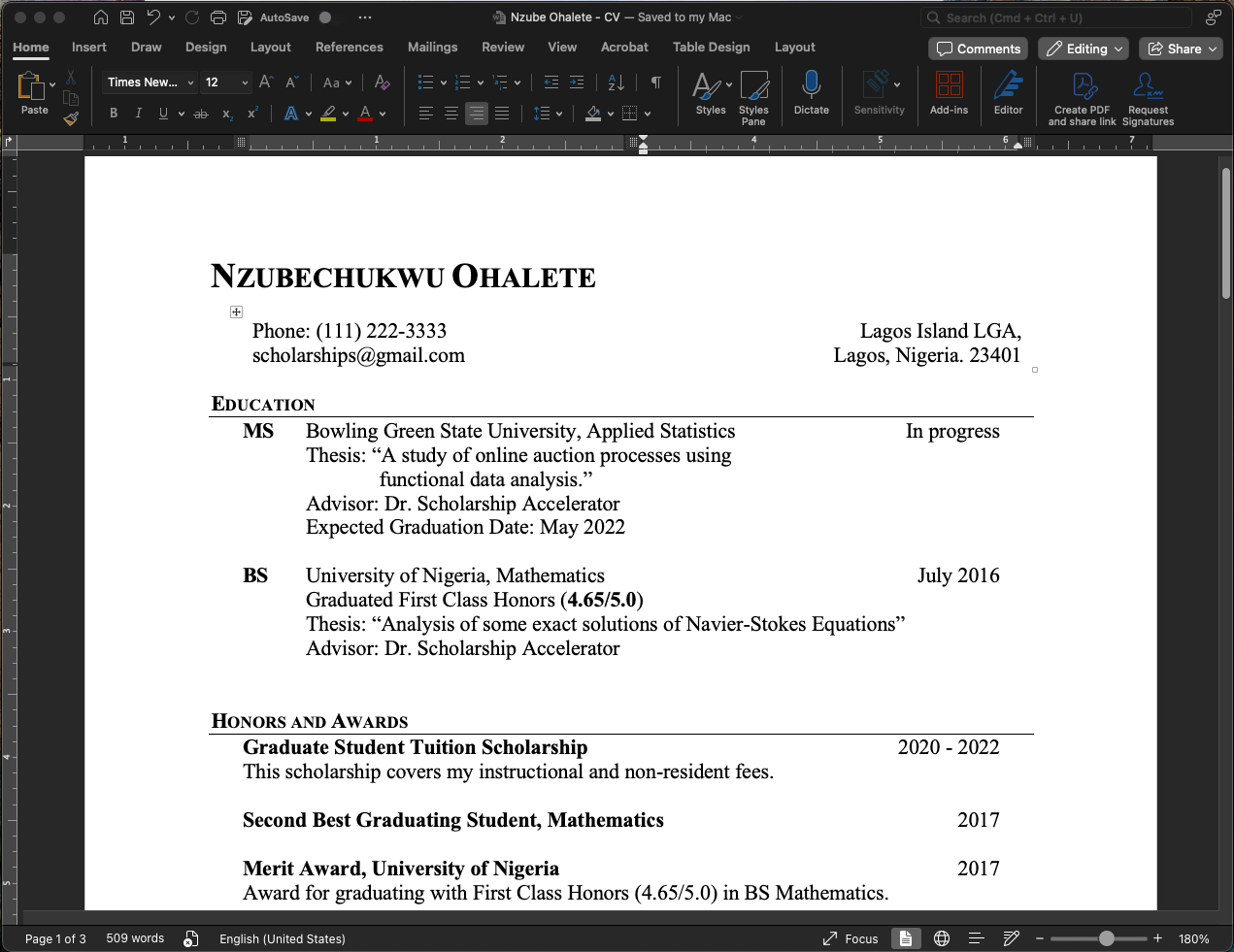
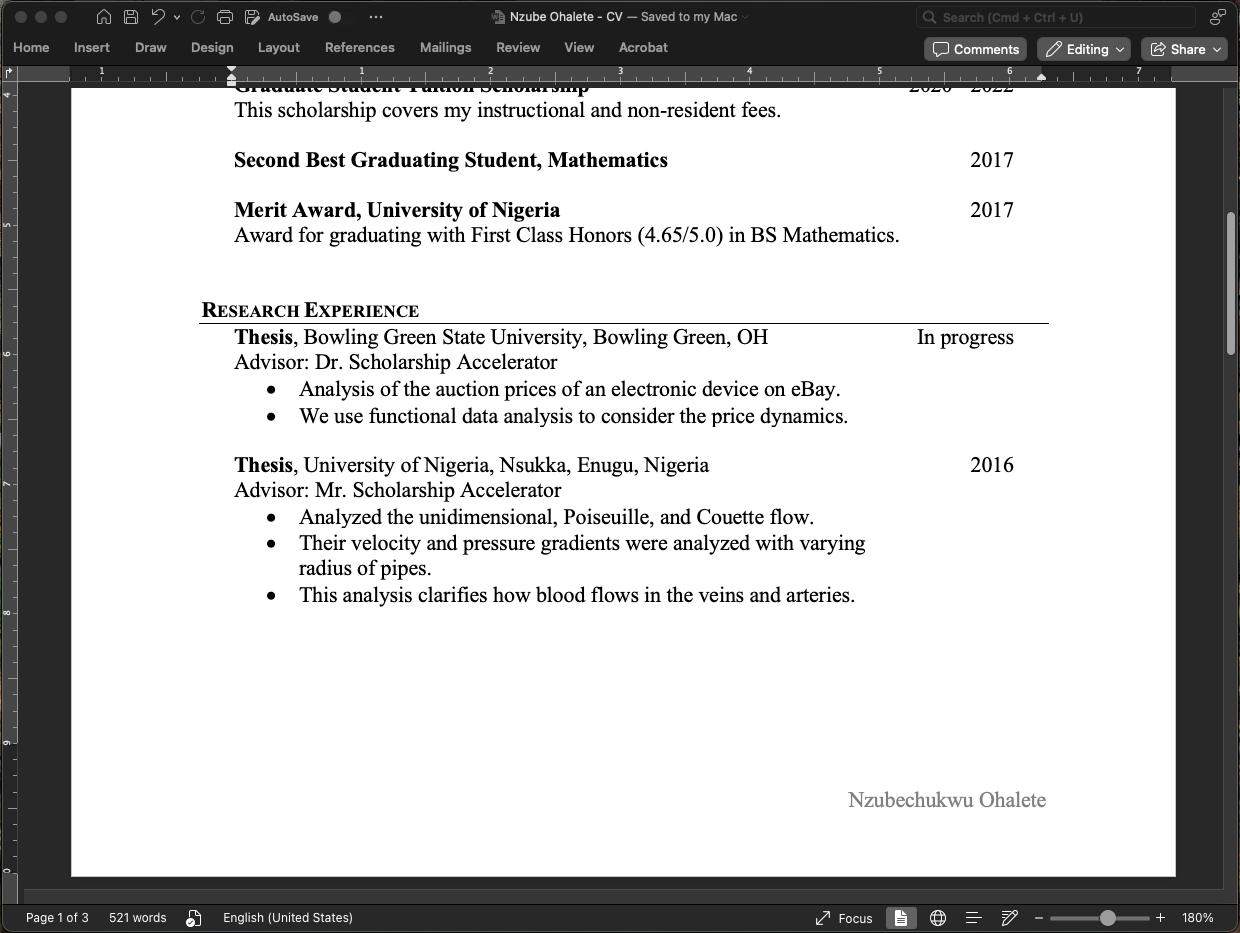
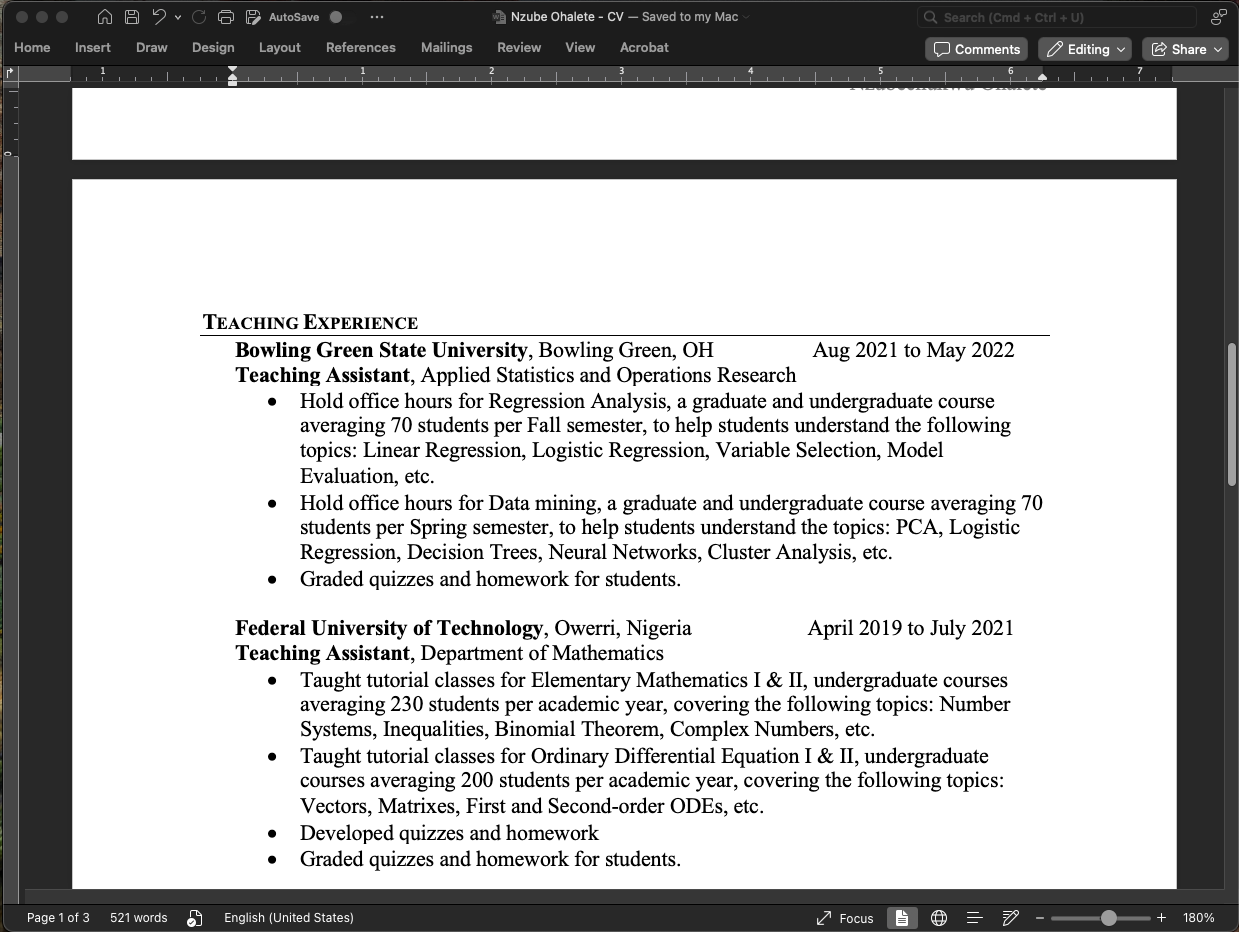
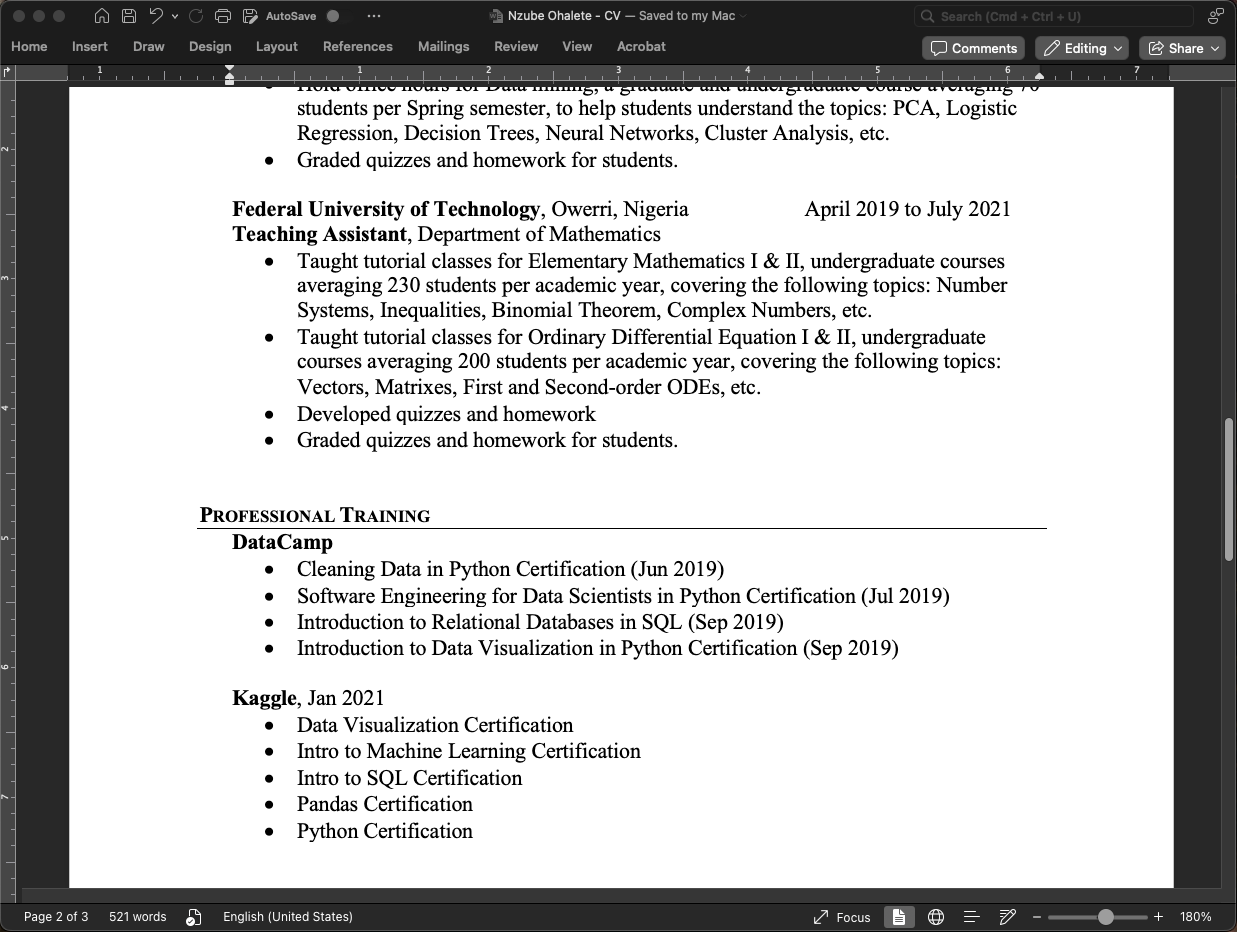
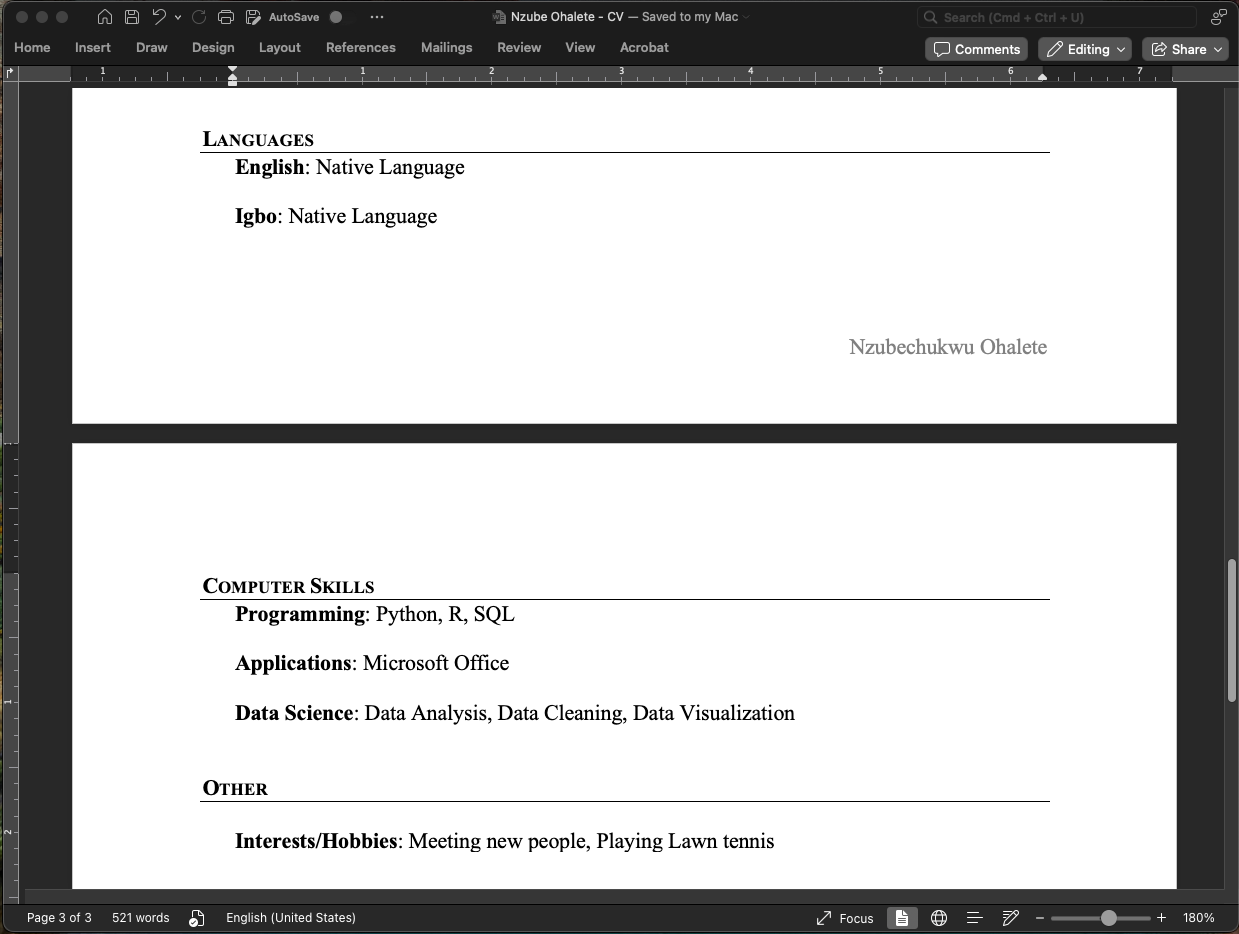

Mr. Nzube, I would like to express my sincere gratitude for your mentorship and guidance. I am currently reaching out to schools in the US following the teachings in your videos. I am applying for my master's in Accounting, and I hope to get admission as a graduate assistant.
Insightful